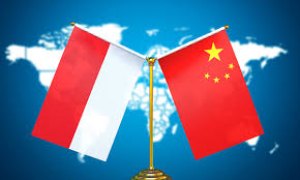A closer look at gender inequality in Indonesia's tech industry
Gender inequality is a significant problem in the tech industry in Indonesia, as it is in many other countries around the world. Women are severely underrepresented in the tech industry, both in terms of employment and leadership positions.
According to a 2020 report by McKinsey&Company, women make up only 27 percent of the workforce in the tech industry in Indonesia. This is significantly lower than the average for all industries in the country, where women make up 40 percent of the workforce.
The percentage of STEM (Science, Technology, Engineering, and Mathematics) graduates in higher education is also still low – 32 percent – and dominated by male graduates, as reported by the National Socioeconomic Survey 2020.
According to UNESCO, 61 percent of women consider gender stereotypes when looking for employment; 50 percent of women are least attracted to work in the STEM field because of men’s domination.
Additionally, women in the tech industry are more likely to be employed in support roles, rather than technical or leadership roles. In terms of leadership roles, the 2020 report by Women in Tech in Indonesia shows women hold only 12 percent of executive positions in the tech industry in Indonesia.
There are many factors that contribute to gender inequality in the tech industry in Indonesia, including societal attitudes towards women in leadership roles. Lack of access to education and training opportunities, and biases in hiring and promotion processes.
In a survey conducted by TalenTrip, 40 percent of women in the tech industry reported experiencing gender discrimination, compared to 29 percent of men. This is in line with a 2020 report by Women in Tech Indonesia that shows women in tech in Indonesia face cultural and societal barriers, as well as a lack of female role models in the industry.
Commitment to improving gender equality in tech industry
The Indonesian government is committed to improving gender equality in the field of STEM. This commitment is also realized through Indonesia's Presidency in the 2022 Ministerial Conference on Women's Empowerment.
Meanwhile, to close the gender gap in the tech industry, various strategies are needed not only to boost the number of women who graduate in STEM, but also to handle issues that women face in pursuing an education and a career in the tech industry.
To address the discrimination issue, the government has implemented several initiatives. Some of these efforts include:
- Launching the “1000 digital startups” program: In 2020, the government launched a program to create 1,000 new digital startups by 2024 aims to support and empower entrepreneurs, including women to develop and grow their businesses in the digital economy.
- Promoting access to education and training: For example, the Ministry of Communication and Information Technology has established the “Digital Talent Scholarship” program to provide scholarships to women and other underrepresented groups to pursue careers in technology.
- Enacting equal pay laws: The government has introduced laws to address gender pay inequality, requiring companies to pay men and women equally for work of equal value.
- Supporting women’s entrepreneurship: For example, the Ministry of cooperatives and MSMEs has established the “Womenpreneur Digital Platform” to provide access to funding, mentorship, and other resources to women-owned businesses.
- Promoting women in leadership: For example, the Ministry of Communication and Information Technology has established the “Women in ICT” to provide training and mentoring to women in the tech industry, with the goal of increasing the representation of women in leadership positions.
However, there is still much work to be done to address gender discrimination and close the gender gap in the tech industry.
This is a critical issue since more than half of 65.4 million Indonesian MSMEs are owned and managed by women, showing their large potential as the drivers of economic recovery after the pandemic. Specifically, women in the tech industry could also be the key to bridging the shortage of 9 million skilled and semi-skilled ICT workers by 2030.
Experts have also cited that Indonesia may have the potential to generate an additional US$62 billion in economic activity and boost GDP by 2.9 percent in 2025 if women participation is increased by 25 percent.
Already have an account? Sign In
-
Start reading
Freemium
-
Monthly Subscription
30% OFF$26.03
$37.19/MonthCancel anytime
This offer is open to all new subscribers!
Subscribe now -
Yearly Subscription
33% OFF$228.13
$340.5/YearCancel anytime
This offer is open to all new subscribers!
Subscribe now






